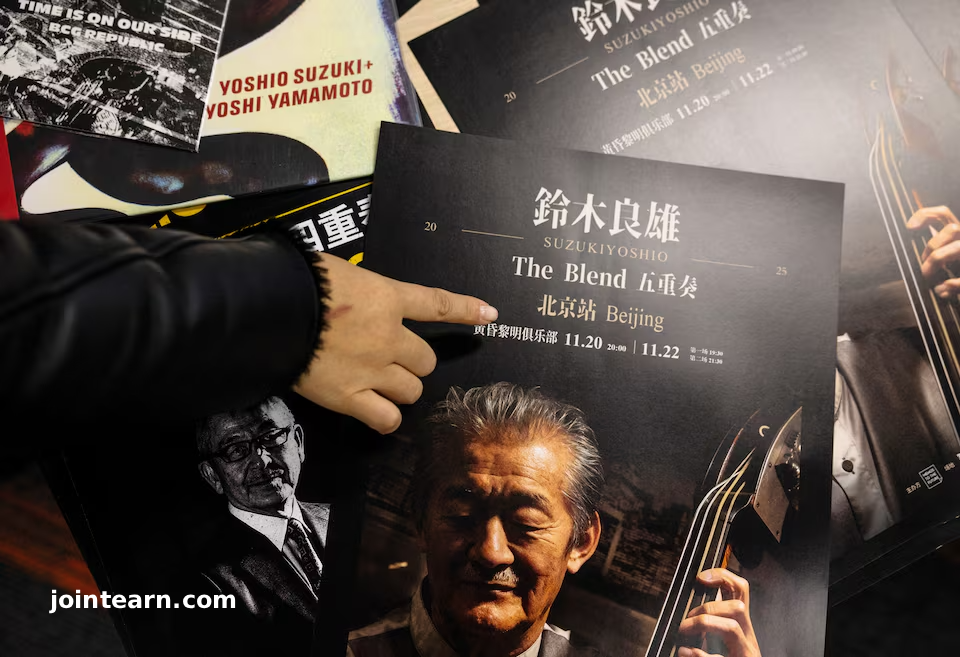
Beijing – China has abruptly cancelled a series of concerts featuring Japanese musicians in major cities this week, as diplomatic tensions with Japan escalate over remarks by Japanese Prime Minister Sanae Takaichi regarding potential military responses to a Chinese attack on Taiwan.
The cancellations affected a dozen events, including performances by Japanese jazz bassist Yoshio Suzuki and his quintet, who were in the middle of a sound check when authorities intervened. “After less than one minute, the venue owner came to me and said the police told him all concerts with Japanese people are cancelled — and there is no discussion,” said Christian Petersen-Clausen, a German concert promoter and filmmaker based in China.
Cultural Boycott as a Diplomatic Tool
This latest move follows an escalating diplomatic dispute. China, which claims Taiwan as part of its territory, was angered by Takaichi’s remarks suggesting that a Chinese attack on Taiwan could provoke a Japanese military response. Beijing initially responded with economic measures, including a ban on Japanese seafood imports and a travel boycott, and has now extended the response to cultural events.
Concert venues were warned by authorities that Japanese musician performances for the remainder of 2025 may be cancelled. Organisers were instructed not to submit new applications for Japanese performers next year and are prohibited from promoting upcoming Japanese music events to fans.
Impact on Musicians and Fans
The abrupt cancellations have disappointed artists and fans alike. Suzuki and his band, who had undergone a months-long review process for Chinese performance visas, were “crushed” by the news, according to Petersen-Clausen. Other cancellations include a Beijing concert by singer KOKIA, with fans sharing complaints on social media about being denied entry despite waiting in long queues. Videos circulated on X showed crowds chanting, “Give us our money back!”
Japanese rapper KID FRESINO also had his China tour indefinitely postponed, reflecting the broad reach of the cancellations.
Economic and Social Implications
China has been attempting to stimulate consumer spending on services amid a prolonged economic slowdown. The cancellations are expected to negatively impact the local economy through lost ticket sales, hotel and travel bookings, and reduced employment for supporting staff. Live music events are particularly important for younger audiences, many of whom attend concerts without regard for international politics.
“Despite online anti-Japanese sentiment, we rarely see politics influencing the audience at these events,” Petersen-Clausen noted.
Historical Context
China has a history of leveraging cultural boycotts as an economic and diplomatic tool, most notably against South Korean artists following the 2016 THAAD missile dispute. K-pop concerts and Korean dramas remain largely restricted on Chinese platforms, demonstrating the government’s willingness to intertwine cultural policy with geopolitical strategy.


Leave a Reply